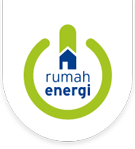FGD The Role of Cooperatives in Climate Finance in Indonesia
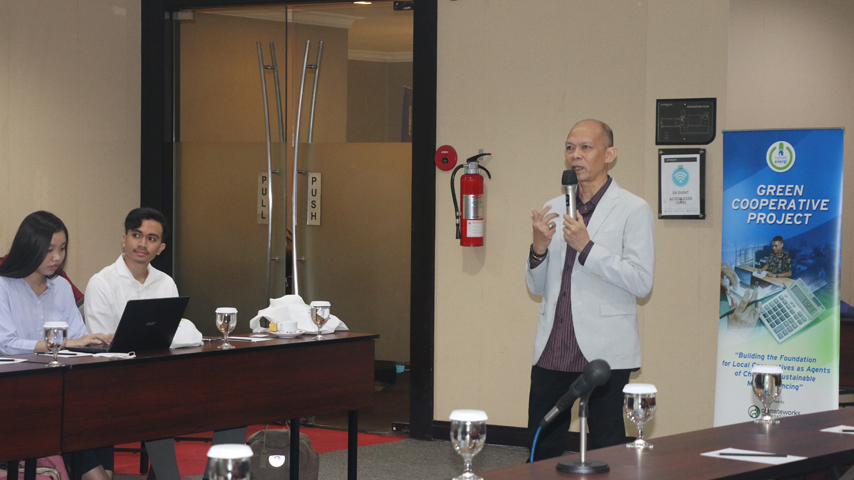
Based on data from the Ministry of Cooperatives and SMEs of the Republic of Indonesia, the contribution of cooperatives to the Gross Domestic Product (GDP) in 2022 is 5.3%. More than that, cooperatives are also institutions whose access reaches the grassroots level, especially in rural areas. Therefore, cooperatives are the right vehicle to be involved in climate change funding. However, new sustainable finance arrangements are set for Bank Financial Institutions and Non-Bank Financial Institutions under the Financial Services Authority where cooperatives do not yet have the same regulations. Climate change funding is broadly interpreted as funding aimed at reducing carbon emissions and vulnerability to the negative impacts of climate change on humans and ecological systems.
Yayasan Rumah Energi (YRE) took the initiative to build stakeholder awareness of the gap in sustainable funding and climate change funds and to build knowledge of the potential for cooperatives in Indonesia to fill the climate change funding gap at the grassroots level. The Focus Group Discussion (FGD) activity or directed discussion entitled “The Role of Cooperatives in Climate Change Funding” is one of the initial activities of the series of project activities Building the Foundation for Local Cooperatives as Agents of Change in Sustainable Micro Financing. This FGD was carried out last May in a hybrid manner or a combination of online and offline. The event was hosted by Dr. Rino Sa’danoer as the Project Manager who divided the discussion into three themes according to the objectives of the activity, namely obtaining consensus from participants about the vacuum of microfinance policies in climate financing, guidelines for implementing cooperatives in climate financing, and ESG guidelines for cooperatives to implement climate finance.
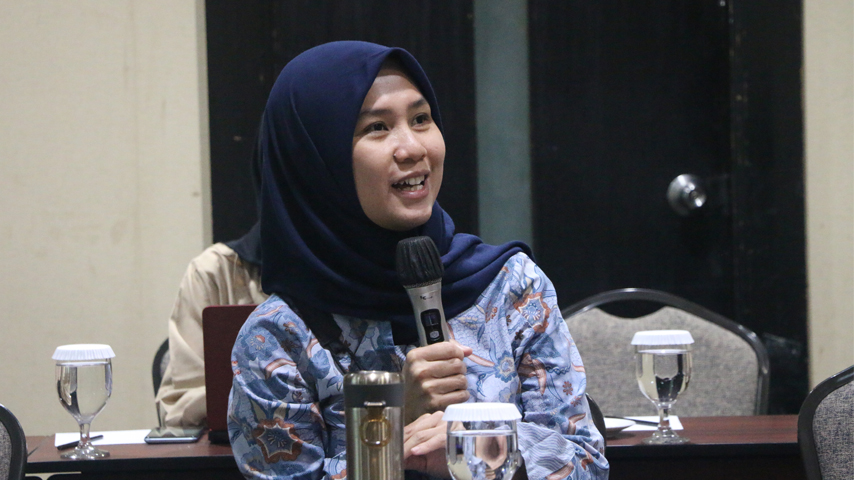
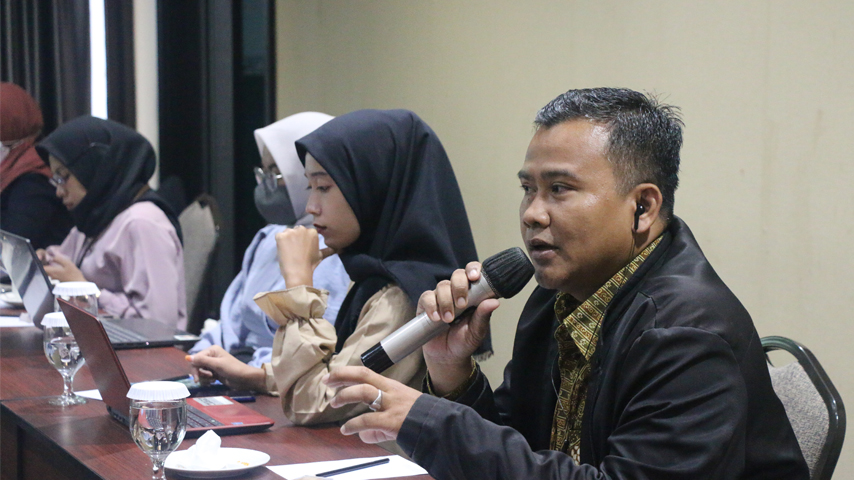
In practice, this focused discussion involved a poll with the participants. Some of the opinions expressed strengthen and criticize the material presented. Ismi Safitri from the Institute for Essential Services Reform (IESR) agreed that there is not much technical support for cooperatives leading to environmentally friendly activities, especially climate change funding. Dr. Rino underlined that there are cooperative members who carry out activities that are environmentally friendly but they are not aware of this. Furthermore, financing schemes for environmentally friendly activities, especially those related to climate finance, are considered difficult by cooperatives, even if they are large cooperatives.
Mr. Noer Soetrisno as the responder said that climate change must become a new concern in the cooperative movement because basically, the cooperative movement has values that contain the principle of caring, one of which is caring for the environment whose form can be translated into concern for environmentally friendly financing or funding carried out by cooperatives. Representative of the Ministry of Cooperatives and SMEs (Kemenkop UKM) Mr. Suradi stated that climate finance is a new thing, and stated that if there is a need for a regulatory policy, then the Ministry of Cooperatives and SMEs is open for further discussion. Furthermore, Kospin Jasa representative Mr. Ridwan revealed that funding for environmental issues in several cooperatives already exists, but it is very small because it is not as attractive as other sectors from a business perspective.
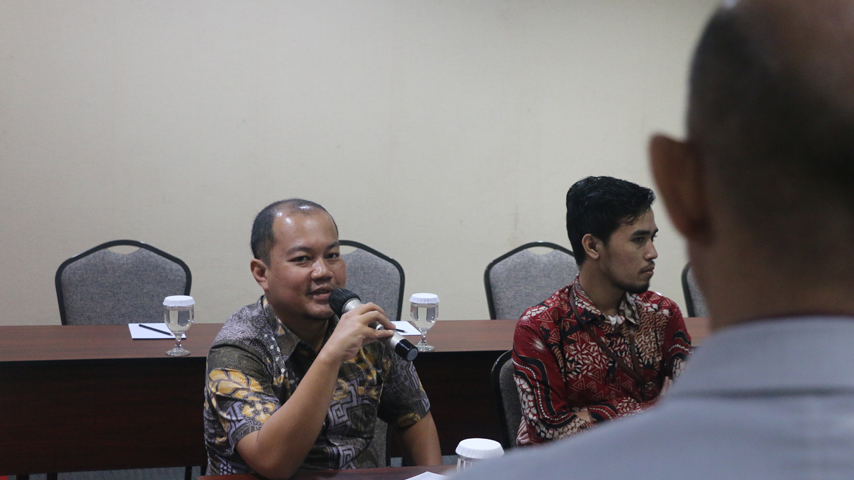
He added when funding for environmental issues or climate funding is running, there must be government regulations and policies that encourage cooperatives to be able to participate in climate change funding, then there must also be a reporting portion. So, when cooperatives are given obligations by the government, cooperatives will move and be more serious in this field, and of course, there must be incentives for cooperatives so that they can survive.
It is hoped that the results of this focused discussion will be the first step in building consensus on common goals, principles and an inventory of issues in the adoption of Environmental, Social, and Governance (ESG) to be included in the draft Policy Paper and Operational Guidelines which will be the final output of the green cooperative project.
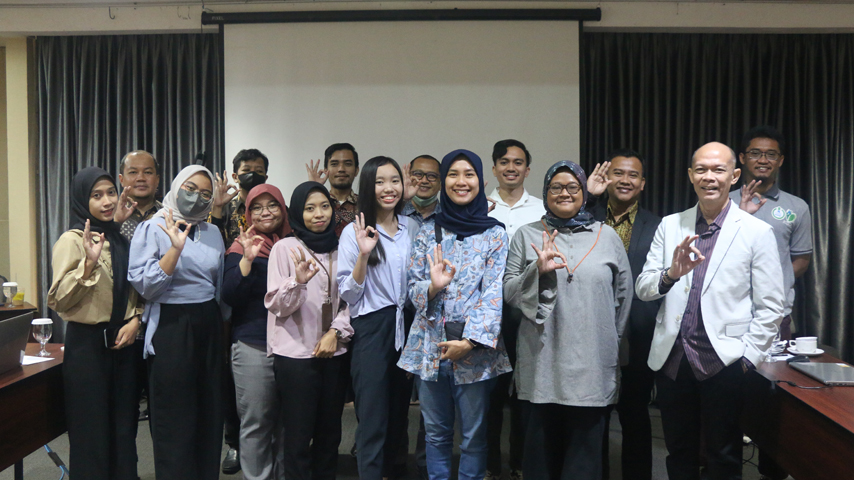
Written by: Arief Susatya
Edited by: Fauzan Ramadhan
